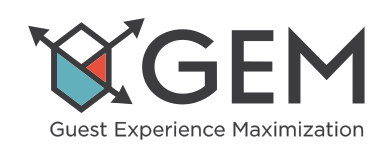DevOps: A Tactical Approach to Drive the Guest Experience

“DevOps” entered the tech lexicon more than a decade ago when a growing disconnect between IT operations and software development became apparent. DevOps isn’t a technology but a tactical approach. It changes how organizations create, deploy, and support applications and services to outperform their competitors.
The origins of DevOps trace back to 2008 with developers Andrew Clay Shafer and Patrick Debois. They sought to get past issues such as diminished collaboration and inconsistent production. Saif Gunja, in What is DevOps? for Dynatrace, describes Shafer and Dubois’ proposal: “Continuous development and delivery in a combined DevOps pipeline.”
The DevOps term became standard with “Devopsdays” conferences initiated a year later in Belgium, which continue each month in locations worldwide.

A Tactical Approach
The DevOps tactical approach coordinates the rapid software delivery chain, job roles, and best practices. It automates build-test-deploy cycles and has expanded to other industry segments. These include DevSecOps (security), DataOPs and MLOps (analytics), AIOps, and CloudOps, up to XOps at the top of the stack.
Reliability, repeatability, and security are essential to driving an enterprise-level operation in 2022. According to a Statista study, the average life span of a company on an S&P 500 index is 21 years. The average was 32 years in 1965, and one of the leading causes is disruption – radical change due to technological innovation.

Staying Ahead of the Innovation Curve
LMS established the Guest Experience Maximization (GEM) brand three years ago to position itself ahead of the innovation curve. GEM DevOps engineer Rajat Narula developed the “xOpsTools” app to run the NOC for partner clients.
Narula and the technology team recently launched the next generation of xOpsTools. It streamlines operations with new front and backend technologies. In addition, it is more adaptable to rebranding and economies of scale.
“We continue to build, change, upgrade the xOpsTools to stay current with the ever-changing tech world around us,” Narula explains. “Without this change, our ‘progress’ will not progress.”
The beauty of xOpsTools is its ability to use data analytics to forecast guest behavior. With 24/7/365 NOC support, they see problems before they occur.

In Search of the Right Combination of Skills
DevOps is leading the trend away from specialization to the right combination of skills in technology roles. Full-stack developers and site reliability engineers are now hot key phrases in recruiting. Yet, soft skills are essential, such as the ability to communicate and work in a team environment.
The number of skills listed in recruiting posts for DevOps engineers is extensive. Writing secure code in fast development cycles is common. Cross-functional collaboration, self-starters, and problem solvers are other frequent catchphrases.

Driven by the Need for Flexibility
DevOps also relies on communication to work, as Saif Gunja explains in the Dynatrace story.
“A successful DevOps initiative is characterized by a culture of experimentation, risk, and trust – one in which constant feedback between all members is both welcomed and utilized.”
Patrick Debois explains the inspiration for the DevOps approach in Java Magazine.
“Before the DevOps movement, once your app was running, you didn’t have any insight into what else was going on. You couldn’t see the logins, you didn’t have access to the file system if something failed, and you couldn’t do debugging. You couldn’t see how things ran in production to avoid making the same mistakes. Those were the main drivers that led me to believe that all this needs to be more flexible.”






